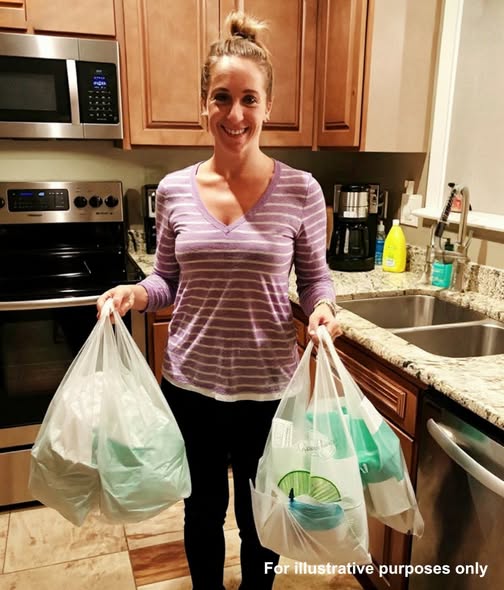Living with Maeve had started out like a dream. Our little city apartment felt cozy, filled with laughter, shared meals, and movie nights. But over time, what started as camaraderie slowly morphed into frustration. Maeve had this knack for asking favors that made you feel guilty for even thinking about saying no. At first, it was small things—grabbing milk, picking up a few snacks—but then it escalated.
Maeve’s tastes were expensive, and I was her unpaid personal shopper. “Finley, can you get some truffle cheese? For my study session. I’ll pay you back, I promise!” She never did. Not once. And the requests became bolder, more demanding, and more relentless.
The breaking point came when she planned a party and handed me a long list of fancy groceries: gourmet cheeses, exotic fruits, imported chocolates, and top-shelf wines. It wasn’t about the money anymore; it was the audacity. I realized Maeve had been taking advantage of my goodwill for months, and I’d had enough.
That evening, after a long day at work, I took the list in hand, a plan forming in my mind. Instead of going to the upscale stores she loved, I headed straight for the discount aisles. Every item she requested would be hers, technically, but with a twist.
The wine? Cheap boxed stuff that would make anyone wince. The cheese? Processed slices meant for sandwiches, not charcuterie boards. The fruits? Plain apples and bananas, far from exotic. And the chocolates? Off-brand candy that looked fancy but tasted cheap.
Returning to the apartment, I set the bags down with a tight-lipped smile. Maeve barely glanced at them before dismissing me with her usual, “Thanks, I’ll pay you back later.” I watched, stifling a laugh, as she remained blissfully unaware of what was about to happen.
Party night arrived, and I stayed in the shadows, sipping my drink and waiting. Her friends gathered, eager for the fancy spread she had promised. But the moment they sampled the wine, their expressions shifted from excitement to confusion and disgust. One guest whispered, “Is this… really wine?”
Maeve’s face went pale as she grabbed the box, realizing what I’d done. The cheese elicited laughter instead of admiration. The “imported chocolates” drew cringes and immediate comments about taste. The atmosphere quickly soured, leaving Maeve standing embarrassed, surrounded by awkward silence and disappointed friends.
I leaned casually against the kitchen doorway, barely containing my amusement. “Everything okay, Maeve?” I asked, keeping my voice neutral but my smirk hidden.
From Maeve’s perspective, the night had turned into a nightmare. She had trusted me to handle the shopping, assuming I would pick the right things. Instead, I’d taken control—and turned her carefully curated vision into a comedic disaster. The humiliation stung, but it also forced reflection. Maeve realized how much she had relied on my generosity, taking it for granted and expecting it to continue without question.
In the days that followed, the dynamic in our apartment shifted dramatically. Maeve stopped asking for favors and began taking responsibility for her own needs. I watched quietly, feeling a mixture of satisfaction and relief. I hadn’t just taught a lesson; I had established boundaries, reclaiming respect for my time and effort.
Eventually, we returned to a semblance of normalcy. We weren’t as close as we had been, but there was mutual understanding. Maeve had learned accountability, and I had learned the power of subtle, clever assertiveness.
Sometimes, growth comes from the most unexpected lessons—embarrassment, humility, and the realization that kindness is not to be exploited. Maeve and I moved forward, both changed, both wiser. And I, for one, knew I would never again let someone take advantage of my generosity without consequences.
